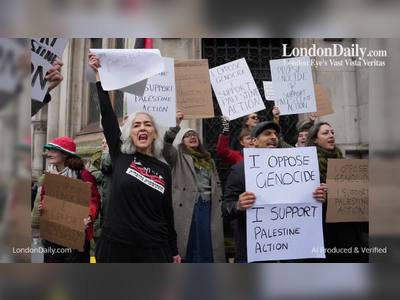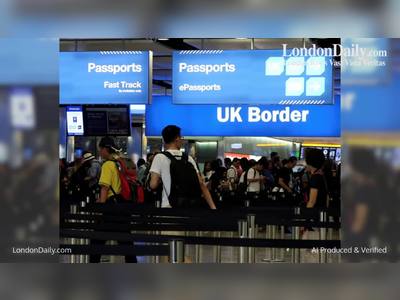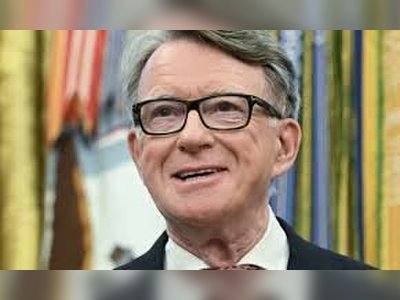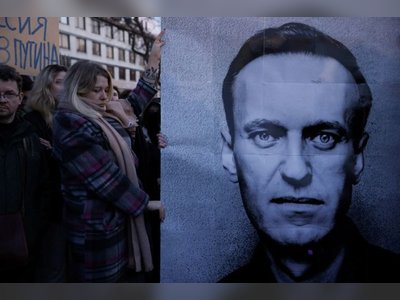
Jamaica's Holness Gov’t skids in popularity
Waves of deadly coronavirus infections and the attendant economic hardships from measures to rein in outbreaks have set Prime Minister Andrew Holness and his Government on a precipitous plunge in popularity, commentators agree.
An RJRGLEANER-commissioned Don Anderson poll revealed that Holness had the nod of approval of 42 per cent of Jamaicans, a decline by more than a third, from 65 per cent in July 2020.
Holness’ negative rating almost tripled from 10 per cent to 27 per cent over the 13-month period.
The slippage represents a collapse in fortunes of the prime minister after the dizzy heights he reached ahead of the September 3, 2020, general election in which his Jamaica Labour Party thumped the Opposition People’s National Party, taking 49 of 63 seats in an emphatic landslide.
After the July 2020 poll, Jamaica suffered the beginnings of community transmission the following month, with two other major surges – February-March 2021 and July-August 2021 – serving as inflection points of distress in the administration’s management of the pandemic.
General and laparoscopic surgeon Dr Alfred Dawes believes that the economic pain and the limitations in movement may have contributed to Holness’ “plummeting popularity”.
“Holness is the one who makes the tough decisions re the lockdowns and the reopening of the economy, and we have seen where he has taken a lot of flak from the entertainment sector’s reopening because people were starving, and then he has converted the problems of the entertainment sector to that of the entire island,” he said.
Dawes added that the prime minister will be judged harshly not only now but in the future if he makes any decisions that people believe equate to him “bowing to special-interest groups”.
CEO of Manpower & Maintenance Services, Audrey Hinchcliffe, told The Gleaner that the current assessment of leaders has a direct relationship to the handling of the COVID-19 pandemic, a situation she deems consistent across other countries, including the United States.
“If you look beyond that, the economy is still fairly stable and usually they judge them according to how the economy is behaving,” she said.
Hinchcliffe, too, said that Jamaicans were displeased with the reopening of the entertainment sector in July, which coincided with the beginning of the third wave which eventually caused record one-month deaths, topping 400, in August.
Further, the Government’s overall performance rating dipped by 19 percentage points over the last year.
The poll showed a decline from 57 per cent in July 2020 to 38 per cent in August 2021.
The Government’s negative performance rating more than doubled, increasing from 12 per cent last year July to 28 per cent in August.
Meanwhile, Minister of Health and Wellness Dr Christopher Tufton was ranked the best-performing minister over the period but his favour by almost 44 per cent – 26 percentage points – moving from 59 per cent in July 2020 to 33 per cent in August.
The poll was conducted between August 19 and September 3 among 1,003 respondents and has a margin of error of plus or minus three per cent.
Dawes asserted that Tufton has been doing a “fair job”, as the COVID-19 death rate remained steady compared to developed countries like the United Kingdom.
“Any wartime leader is going to have the negative perception of them grow, and that is not going to escape Tufton as the head of the toughest ministry to run at this moment,” said Dawes, a columnist with The Sunday Gleaner.
“Problems that cannot be solved because of systemic inadequacies will be magnified and he will have to shoulder the blame for that,” he added.
Dawes, who was campaign manager for the People’s National Party’s Raymond Pryce’s failed candidacy for the St Catherine East Central seat last September, said that Tufton will be loved by some for championing the vaccine roll-out and “hated by many for pushing what they deem is an experimental drug”.
Dawes, who supports COVID-19 vaccination, theorises that even if Tufton maintains the position as best-performing minister, it may be eroded by COVID fatigue.
Hinchcliffe, also an opinion writer in The Gleaner, said that with the pandemic impacting every sphere of life, Tufton’s visibility alone, as the “face of COVID-19”, would give him high ratings.
“Whether it be a press conference, in Parliament, out in the field or receiving vaccines at the airport, he has been there. He has taken the licks and the bumps and he keeps going,” the Manpower CEO said.
The poll ranked Finance Minister Dr Nigel Clarke and Local Government Minister Desmond McKenzie, respectively, second and third best-performing ministers.
Clarke’s rating decreased by three, from 10 per cent to seven per cent, while McKenzie’s six per cent was slashed in half.
Among the worst-performing ministers were Dr Horace Chang, minister of national security, and Robert Montague, transport minister.
Chang was rated poorly by seven per cent of respondents, while four per cent named Montague.
McKenzie, the local government minister, was also labelled as a poor performer by three per cent of the respondents.
Some 61 per cent of participants in the poll did not name a worst-performing minister.
Holness’ negative rating almost tripled from 10 per cent to 27 per cent over the 13-month period.
The slippage represents a collapse in fortunes of the prime minister after the dizzy heights he reached ahead of the September 3, 2020, general election in which his Jamaica Labour Party thumped the Opposition People’s National Party, taking 49 of 63 seats in an emphatic landslide.
After the July 2020 poll, Jamaica suffered the beginnings of community transmission the following month, with two other major surges – February-March 2021 and July-August 2021 – serving as inflection points of distress in the administration’s management of the pandemic.
General and laparoscopic surgeon Dr Alfred Dawes believes that the economic pain and the limitations in movement may have contributed to Holness’ “plummeting popularity”.
“Holness is the one who makes the tough decisions re the lockdowns and the reopening of the economy, and we have seen where he has taken a lot of flak from the entertainment sector’s reopening because people were starving, and then he has converted the problems of the entertainment sector to that of the entire island,” he said.
Dawes added that the prime minister will be judged harshly not only now but in the future if he makes any decisions that people believe equate to him “bowing to special-interest groups”.
CEO of Manpower & Maintenance Services, Audrey Hinchcliffe, told The Gleaner that the current assessment of leaders has a direct relationship to the handling of the COVID-19 pandemic, a situation she deems consistent across other countries, including the United States.
“If you look beyond that, the economy is still fairly stable and usually they judge them according to how the economy is behaving,” she said.
Hinchcliffe, too, said that Jamaicans were displeased with the reopening of the entertainment sector in July, which coincided with the beginning of the third wave which eventually caused record one-month deaths, topping 400, in August.
Further, the Government’s overall performance rating dipped by 19 percentage points over the last year.
The poll showed a decline from 57 per cent in July 2020 to 38 per cent in August 2021.
The Government’s negative performance rating more than doubled, increasing from 12 per cent last year July to 28 per cent in August.
Meanwhile, Minister of Health and Wellness Dr Christopher Tufton was ranked the best-performing minister over the period but his favour by almost 44 per cent – 26 percentage points – moving from 59 per cent in July 2020 to 33 per cent in August.
The poll was conducted between August 19 and September 3 among 1,003 respondents and has a margin of error of plus or minus three per cent.
Dawes asserted that Tufton has been doing a “fair job”, as the COVID-19 death rate remained steady compared to developed countries like the United Kingdom.
“Any wartime leader is going to have the negative perception of them grow, and that is not going to escape Tufton as the head of the toughest ministry to run at this moment,” said Dawes, a columnist with The Sunday Gleaner.
“Problems that cannot be solved because of systemic inadequacies will be magnified and he will have to shoulder the blame for that,” he added.
Dawes, who was campaign manager for the People’s National Party’s Raymond Pryce’s failed candidacy for the St Catherine East Central seat last September, said that Tufton will be loved by some for championing the vaccine roll-out and “hated by many for pushing what they deem is an experimental drug”.
Dawes, who supports COVID-19 vaccination, theorises that even if Tufton maintains the position as best-performing minister, it may be eroded by COVID fatigue.
Hinchcliffe, also an opinion writer in The Gleaner, said that with the pandemic impacting every sphere of life, Tufton’s visibility alone, as the “face of COVID-19”, would give him high ratings.
“Whether it be a press conference, in Parliament, out in the field or receiving vaccines at the airport, he has been there. He has taken the licks and the bumps and he keeps going,” the Manpower CEO said.
The poll ranked Finance Minister Dr Nigel Clarke and Local Government Minister Desmond McKenzie, respectively, second and third best-performing ministers.
Clarke’s rating decreased by three, from 10 per cent to seven per cent, while McKenzie’s six per cent was slashed in half.
Among the worst-performing ministers were Dr Horace Chang, minister of national security, and Robert Montague, transport minister.
Chang was rated poorly by seven per cent of respondents, while four per cent named Montague.
McKenzie, the local government minister, was also labelled as a poor performer by three per cent of the respondents.
Some 61 per cent of participants in the poll did not name a worst-performing minister.










